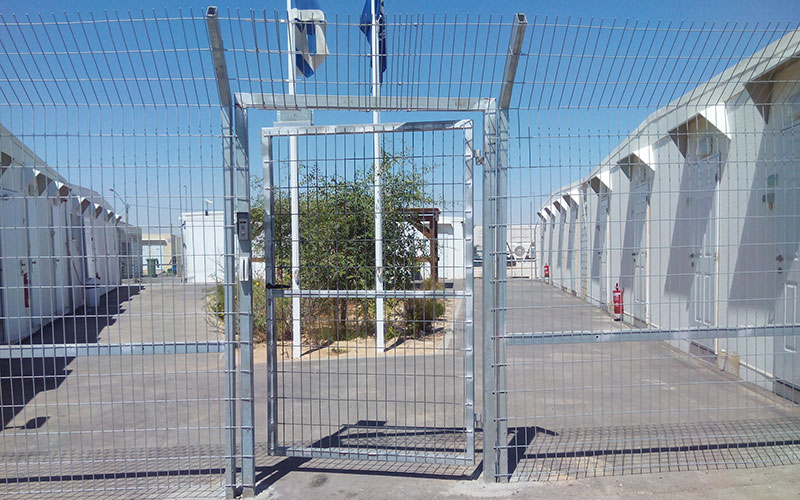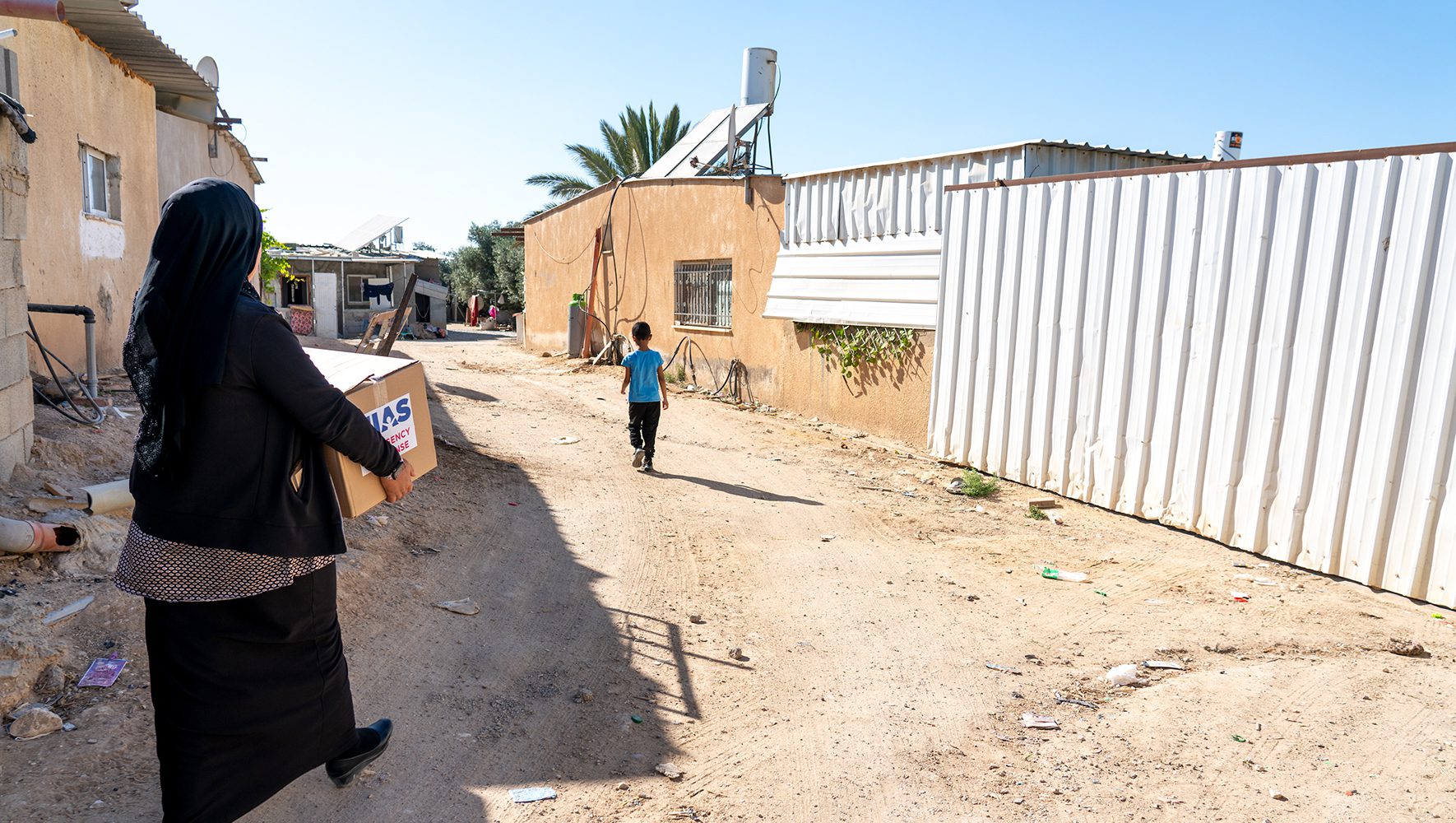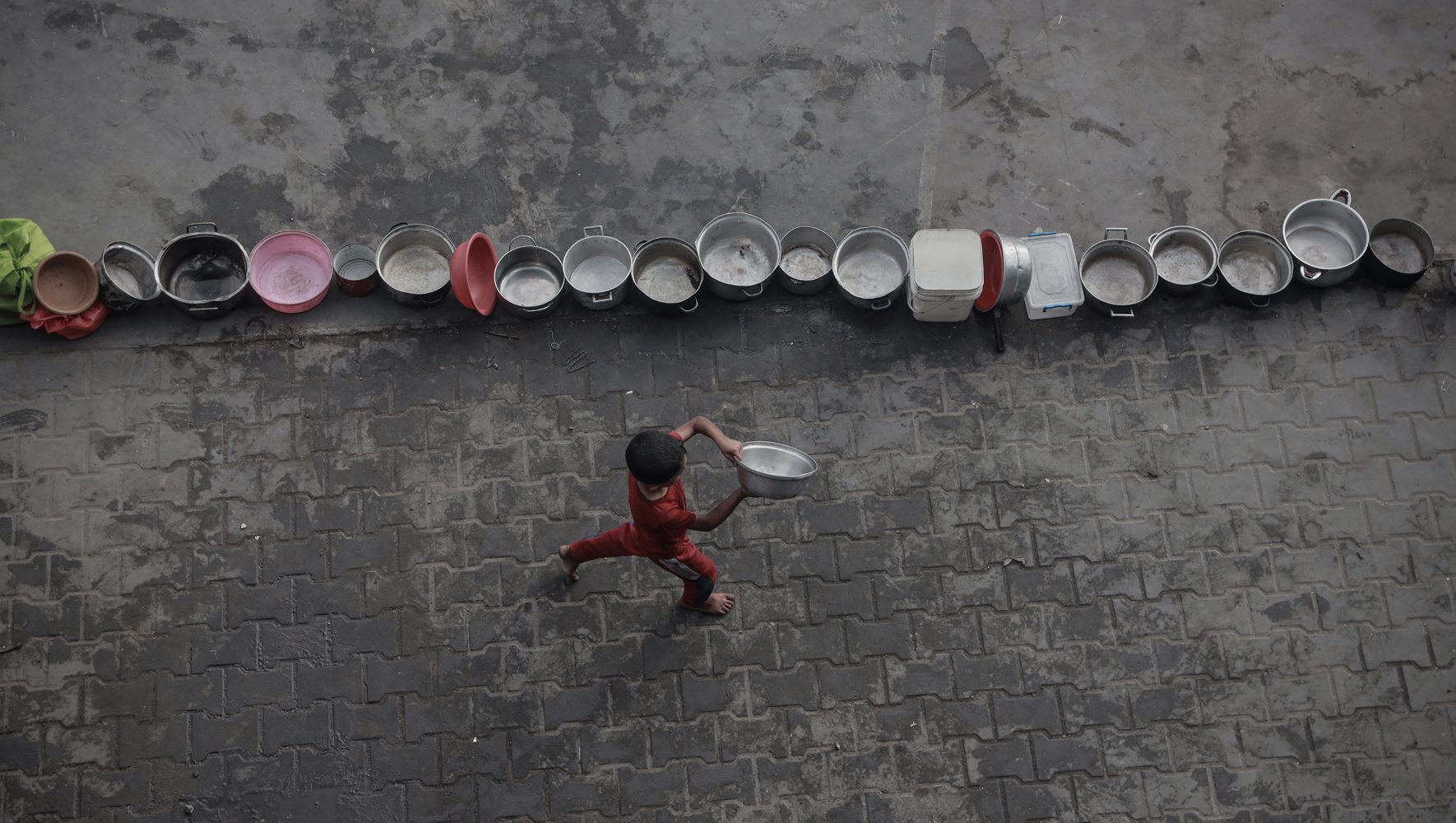A Reprieve for Eritrean Asylum Seeker in Israel
By Zhanna Veyts, HIAS.org
Feb 06, 2015

The Holot detention facility in the Negev Desert.
For "Adam”, a 31-year-old asylum seeker in Israel who fled Eritrea after being incarcerated and tortured for leaving military service without permission, life has been filled with uncertainty almost as long as he can remember. While crossing the Sinai Desert, Adam was taken for ransom by Bedouin smugglers; he suffered extensive beatings and torture before his family was able to pay the requested sum. After crossing the border to Israel he was placed in the Saharonim detention facility for three months. When he was released, he managed to find work and earn a living, renewing his "conditional release" permit from time to time for about five years.
Like many other asylum seekers from Sudan and Eritrea, Adam's permit was taken away from him in January 2014 and he received a summons to go to Holot, the isolated "open" detention facility in the Negev Desert*. Being confined again brought back Adam’s experiences of imprisonment and torture in Eritrea and Sinai. He suffered nightmares and fell out of his bunk bed on his first night at the facility. The reality of Holot became intolerable for Adam and he decided to leave.
In Tel Aviv, Adam sought help at a mental health clinic for undocumented migrants and was diagnosed as suffering from severe PTSD. For six months he lived without status, not daring to leave his apartment for fear of arrest by the immigration authorities.
HIAS recently launched a pro bono legal aid project to provide legal representation to asylum seekers in Israel. In December, Adam’s case was referred to the project and, with the help of attorney Moran Gur and law student Sabina Shmulevitch, Adam’s order to stay in Holot was canceled and he was granted a “conditional release” permit, allowing him to stay in Israel and to work temporarily. Without the lawyer’s presence in the interview, Adam would have struggled to express his difficulties and to understand some of the questions he was asked.
Several days after the hearing at the Ministry of Interior office, Adam met with Kayla Zecher-Rothman, a law student working on the pro bono legal aid project, who helped him write and submit his refugee claim to the Ministry of Interior.
The acceptance rate of refugees in Israel is less than 1% and Adam is not hopeful about his prospects. Still, he feels it is important to tell his story and exercise his right to seek asylum. Adam does not know if he will ever be able to return safely to Eritrea or what the future holds for him in Israel. But for now, at least, he can step out of his apartment without fearing arrest, is able to work at a local restaurant and, with on-going support from the mental health clinic, Adam is starting 2015 with a renewed sense of freedom.
"He is different now," said a community volunteer who met with Adam several days after his order to Holot was canceled. "He speaks with confidence about his rights. I think he also smiles more."
* At that time, under Amendment No. 4 to the Anti-Infiltration law, detainees were able to leave the facility, but were not able to work legally in Israel, had to report for three daily roll calls in the morning, midday and at night, and were not able to leave from 10 p.m. to 6 a.m., all of which made mobility nearly impossible. Today, under Amendment No. 5 to the law, residents of the facility are required to check in once a day (in the evening) and must remain at the facility overnight. The rest of the restrictions are still in place and a petition against the constitutionality of this amendment is pending before the High Court of Justice.



